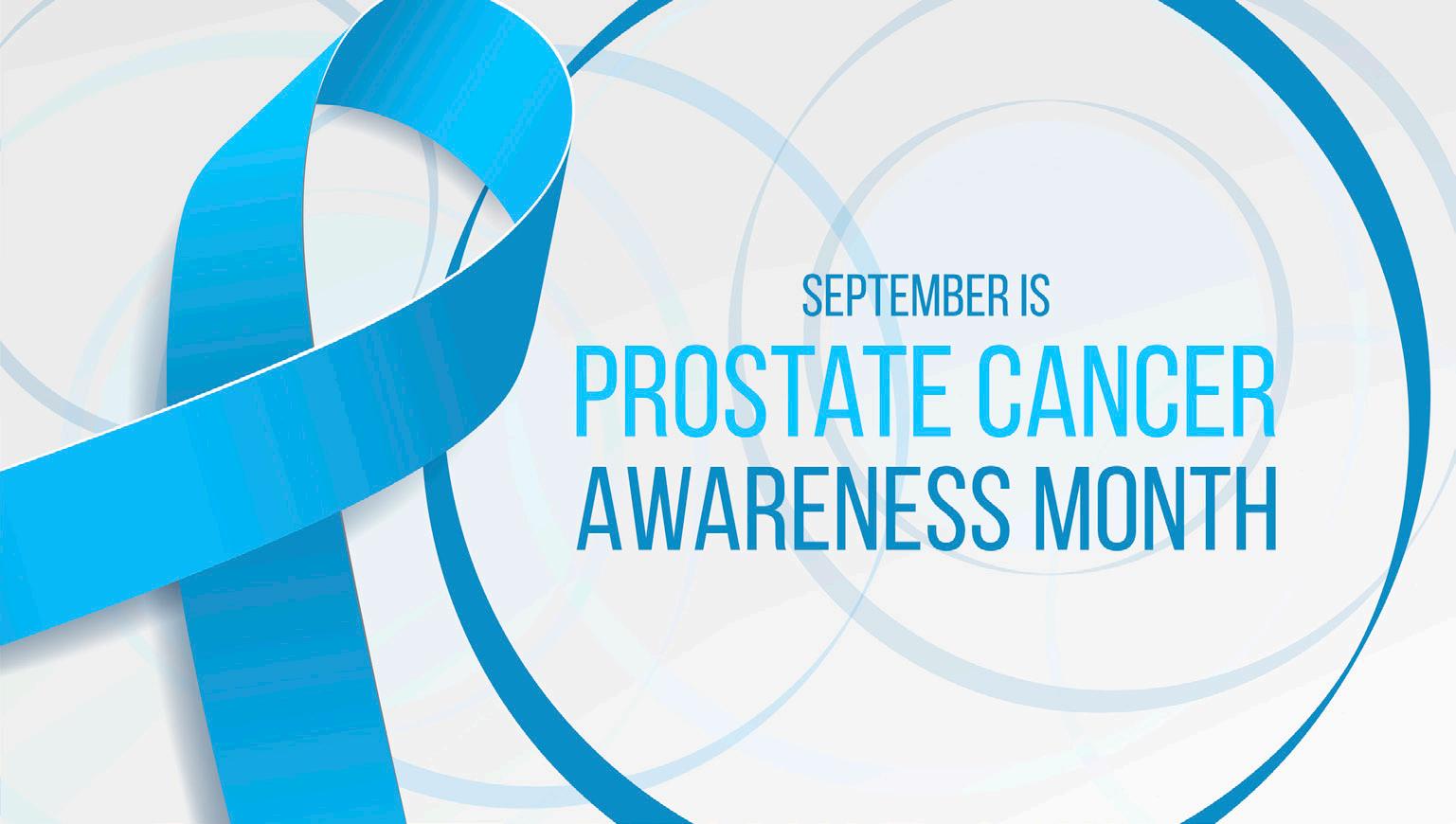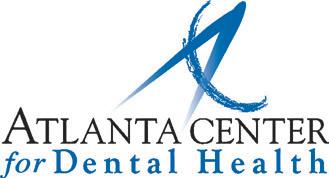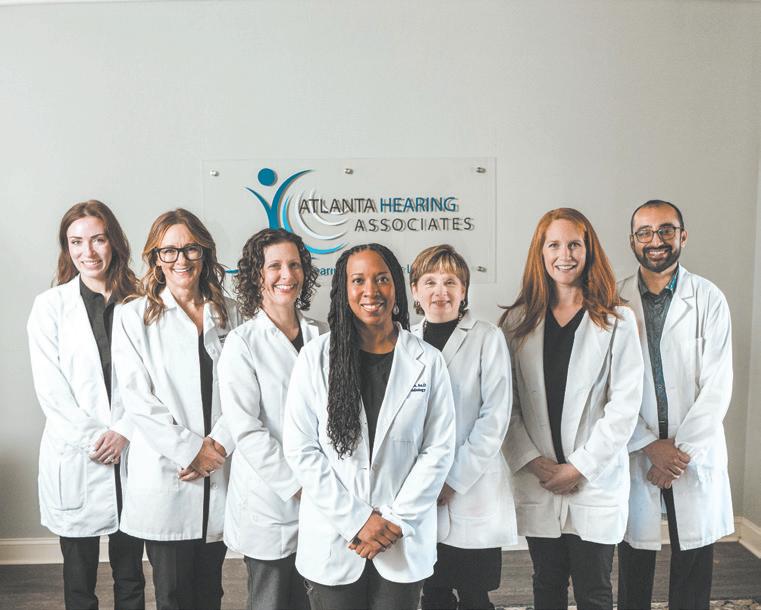




Dr. Brent Taylor is a Board-Certified Dermatologist, a Fellowship-Trained Mohs Surgeon, and is certified by the Board of Venous and Lymphatic Medicine in the field of Vein Care.
He is an expert in skin cancer and melanoma treatment, endovenous laser ablation, minimally invasive vein procedures and cosmetics procedures such as Botox and injectables.
Kathryn is a certified physician assistant with over 22 years experience as a Dermatology PA and cosmetic dermatology.
Her specialties include general dermatology such as acne, eczema, rashes, hair loss, full body skin exams, abnormal growths etc. Kathryn also specializes in cosmetic dermatology including lasers, injectables, micro-needling, PRP, facial peels, sclerotherapy for spider veins and at home skin care.


Melanoma, the deadliest form of skin cancer, is more common in men than women. That raises the question: does testosterone fuel melanoma? Is estrogen protective? Or are behavioral differences the real factor?
The answer is more complicated.
Women actually develop slightly more melanomas than men until their late 40s. Then, around age 50, male incidence soars. By age 80, men develop three times as many melanomas as women.
If testosterone were causing melanomas and estrogen were protective, we would expect the opposite trend: higher rates in young men, then narrowing differences as testosterone declines with age. Instead, women lead in youth—when men’s testosterone is highest.
The tanning bed effect
One explanation may lie in tanning salons. Roughly 75% of tanning bed users are women, most aged 16 to 29.
Tanning bed use increases melanoma risk by about 75%. “Heavy users”— with more than 100 sessions—face a 150–200% higher risk. One study even estimated a nearly 2% higher melanoma risk per tanning session per year.
Because women use tanning beds far more often than men, this may explain why women develop more melanomas before age 50. But it does not explain why men overtake women so dramatically afterward.
Sun and biology
Studies suggest men generally experience more outdoor sun exposure than women. Still, that alone doesn’t account for the gap.
Biology likely plays a role. Estrogen tends to strengthen the immune system, while testosterone suppresses parts of it. T cells—critical in fighting viruses and cancer—are more adversely affected by testosterone than B cells. That difference could make men more vulnerable.
Chromosomes and cancer
Sex differences extend beyond hormones. Women have two X chromosomes, men an X and a Y. The X chromosome contains more tumorsuppressing genes. In effect, women often have a genetic “backup” that men lack.
Other cancers show a similar pattern. Colon cancer is 33% more common in men. Leukemia is 37% more
common. In the U.S., melanoma is about 36% more common in men than in women.
What does this mean for patients? I recently had a patient with a history of skin cancer—though not melanoma—ask if he should continue testosterone therapy.
A large Medicare study found that men who had taken supplemental testosterone were about 70% more likely to be diagnosed with melanoma. But the study could not control for other factors such as sun exposure or tanning bed use. Were testosterone users simply spending more time outdoors? How much of the risk came from the hormone itself?
Research also shows that men with metastatic melanoma and high testosterone levels tend to do worse. Whether testosterone supplementation should be avoided in men with only localized melanoma or other skin cancers is controversial. A patient might harbor undetectable metastatic melanoma, and supplemental testosterone could accelerate its growth.
In this country, patient freedom is paramount. The physician’s role is often to present the data and allow the patient to decide.
Some patients want to maximize life expectancy. Others balance quality and quantity of life. For some, the energy and mood benefits of testosterone may outweigh uncertain cancer risks. For others, minimizing risk comes first.
Based on current literature, the right answer is patient-specific.
Testosterone may contribute to worse outcomes in advanced melanoma, and supplementation could raise melanoma risk. But the evidence is not definitive.
What is clear is that prevention and early detection matter most. Avoiding tanning beds, protecting your skin from UV exposure, and getting regular dermatology exams remain the best ways to lower melanoma risk.
For someone with a history of melanoma, testosterone supplementation is likely contraindicated. For others, the decision comes down to preference, risk tolerance, and weighing likely quality of life benefits against poorly defined quantity of life concerns.

Brought to you by – Home
and North Atlanta Suburbs
September is National Falls Prevention and Awareness Month, an often underrated issue that is extremely important for you or your older loved one. Falls are the leading cause of fatal and non-fatal injuries for older Americans, with over 2.8 million emergency room visits annually. The National Commission On Aging (NCOA) reports that every 11 seconds an older adult is seen in an emergency room for a fall, and one in four seniors fall each year. Every 19 minutes an older adult dies from a fall.
Many of these falls result in serious injuries such as hip fractures, broken bones, and head injuries, which can have lasting consequences on independence and quality of life. More than 70% of all falls happen in the home, with bathrooms and bedrooms accounting for 80% of these incidents - highlighting the need to be proactive.
Be attentive to early warning signs in older loved ones, such as frequently holding onto chairs or walls while walking, struggling to rise from a seated position without support, or exhibiting muscle weakness. These behaviors can signal underlying balance or mobility challenges. Additional risk factors include adverse effects from multiple medications, vision issues, and problems with gait or dizziness from chronic health issues.
Often, the place that feels safest— one’s longtime home—can present hid-
den dangers. Clutter, poorly arranged furniture, inadequate lighting, throw rugs and uneven stairs can all contribute to falls. Simple home modifications like grab bars, shower chairs, improved lighting and addressing health concerns can make a significant difference in reducing these risks.
A skilled, heart-centered Home Helpers caregiver can play a vital role in fall prevention. Caregivers can assist with bathing and grooming—two activities of daily living that present significant hazards, especially in slippery bathrooms. Their expertise helps minimize risks, ensuring these tasks are performed safely. They assist with all personal care, help around the house, can accompany you on doctor’s visits and provide specialized care for Alzheimer’s or Parkinson’s support.
A dedicated caregiver can also provide support after a stroke, surgery or extended hospital stay. Encouraging balance and therapy exercises prescribed to improve strength and stability with consistent follow-up is essential for recovery and preserving mobility. For those in assisted living communities who become high fall risks, in-home care can make all the difference. With personalized care plans to meet individual needs, an older loved one can continue living in the community they love.
For a free consultation and exceptional care management from six hours a day, several days a week to 24/7 and live-in care, please call Home Helpers of Alpharetta and North Atlanta Suburbs at (770) 681-0323.






So, you may be asking why having genetic information is so important for your dentist. With this information, the clinician will be able to create a more personalized risk assessment for cavities and periodontal disease. For example, how is the patient’s genetics contributing to the severity of disease? How will the patient respond to treatment? And how susceptible is the patient to relapse? As healthcare is going towards “precision medicine,” which looks at the genetics, environment, and lifestyle of a person to select treatment that could work best for them, we can now provide even further personalized dental health care.
Understanding saliva testing
Saliva is a vital fluid produced by the salivary glands, playing a key role in digestion, oral hygiene, and overall health. It contains a complex mixture of proteins, enzymes, electrolytes, and microorganisms. This composition makes saliva a valuable diagnostic tool. Saliva testing involves analyzing these components to gain insights into a patient’s health status. In our office, we utilize OralDNA® Labs. These saliva tests can identify the specific type and concentration of 11 disease-causing bacteria as well as identify your interleukin-6 (IL6) genotype, which is a crucial factor in promoting the inflammation pathway in the body. Information from these tests detect risk for disease, guide strategies for maintaining health, offer more accurate diagnosis, and guide treatment choices for a wide variety of conditions.”
tection of periodontal infection and proactive management to reduce bacterial loads can improve blood sugar control and lessen complications of diabetes and the consequence of periodontitis.
The oral microbiota changes when women become pregnant, and levels of periodontal pathogens increase. During pregnancy, there is a marked risk of infection of the maternal blood and the placenta, which leads to an increase in preterm labor, lower birth weight and even the chance of fetal loss due specifically to the bacteria
Advanced periodontal disease is associated with a 2.5-fold increase in smokingrelated cancers. People with elevated levels of certain periodontal pathogens have a greater chance of breast cancer recurrence or failed response to treatment. Several recent studies show that these pathogens can be identified within the primary cancer cells from colonic tumors and are carried to metastatic sites involving regional lymph nodes. This is a newly observed phenomenon that will affect how cancer treatment protocols will be developed in the future.
& Musculoskeletal health
• Spa-Like Relaxing Atmosphere
• Free Nitrous Oxide and Oral Conscious Sedation
• Cone Beam 3D Radiography
Digital Scanner – No More Gooey Impressions
• Botox and Dermal Filler
Master Injector
• Platinum Invisalign Provider


These bacteria, especially at high levels, and in combination with an individual's genetic inflammatory response, result in bad breath, painful bleeding gums, loss of bone, and eventually tooth loss. The consequences of these same bacteria, present for years and decades, add significantly to the risk of a wide range of life-threatening diseases beyond the mouth. Below are some of those diseases and the measurable risk of those diseases becoming serious if these oral pathogens are not treated.
Cardiovascular disease
Periodontal bacteria contribute to the initiation, progression, and prognosis of cardiovascular disease. There is also over a 2-fold increase in the risk of stroke and peripheral vascular disease. The plaque in your mouth is the same as plaque in your heart!
Metabolic health and diabetes
Elevated levels of periodontal bacteria can directly cause hyperglycemia. Early de-
Rheumatoid arthritis is a chronic inflammatory condition. There was a significantly increased risk of periodontitis in people with RA compared to healthy controls. Importantly, the bacteria are typically found before the onset of symptoms, so the reduction of bacterial load may reduce symptoms and improve prognosis of arthritis.
and brain health
There is now evidence that certain periodontal pathogens present in brain tissue and cerebrospinal fluid may be involved in producing the abnormal proteins characteristic of Alzheimer’s disease. Additionally, the direct effects of those oral bacteria to cause atherosclerosis in the vessels within the brain impart significant risk for stroke and vascular types of dementia. The plaque in your mouth is the same as plaque in your brain!
Dr. Destinee Hood is excited to provide this service to her patients. Our entire team at Roswell Dental Care creates a caring, judgement-free environment to help educate and empower you to become your best self! We take the time to listen to you, hear you, and guide you! Knowledge is power! Call and make your appointment today at 770-998-6736 or visit www.Roswell dentalcare.com.


Did you know that exercise is a powerful anticancer tool? Research has found that exercise reduces the growth and division of cancer cells and stimulates cancer cell death. Exercise has even been shown to improve immune system function as well.
Whether you have cancer or are trying to prevent it, the best time to start exercising is now. People who exercise regularly have a lower risk of developing cancer and tend to have better treatment outcomes if they do get cancer.
Even if you have cancer and have not been participating in an exercise regimen, research tells us that you will benefit from starting an exercise

program now. In addition to improving treatment outcomes, exercise also helps with fatigue, depression, anxiety, and even sleep.
The good news is that you only need to exercise 30 minutes a day, three times a week, to derive these benefits. An activity such as a brisk walk is perfect, at a pace which allows you to talk but not sing. Resistance training also has many benefits.
As always, please get approval from your doctor before embarking on a new exercise regimen. Choose an activity you enjoy, and make it a regular part of your life. You’ll be glad you did!




Brought to you by –
Wellstar Urologist Dr. Scott Miller
Five years ago, you probably had hand sanitizer in your car, a thermometer in your bag and a mental checklist for every sniffle. That was life during COVID. But these days? It’s easy to forget what once felt urgent.
The same thing happens with men’s health—especially prostate cancer. For a brief moment, maybe after a friend was diagnosed or during a Movember campaign, it’s top-ofmind. But if nothing seems wrong, it quickly slips to the back burner. That’s a problem—because prostate cancer doesn’t wait until you’re ready.
At Wellstar North Fulton Medical Center, we see too many men
surprised by late diagnoses. Why? Because they felt fine. Because they had no symptoms. Because they believed some version of the same three myths:
• “Prostate cancer doesn’t kill men.”
Actually, it’s the second leading cause of cancer death in men. When caught early, it’s highly treatable. But when ignored, it’s dangerous.
• “I don’t have symptoms, so I’m good.”
Most early-stage prostate cancers are completely silent. No pain, no urinary issues, no warning. That’s why screening matters
• “Testing leads to side effects.”
Screening doesn’t mean treatment. A prostate-specific antigen (PSA) blood test is a simple tool that helps guide the next steps. Many men with slowgrowing cancers don’t need surgery— just monitoring. For those who do need treatment, options are far more
•Over 50? Ask about PSA screening.
•Black men or those with a family history? Start the conversation even earlier, when you’re 45 if you’re Black, and 40 if you have a family history.
•Already tested? Know your number and track changes over time.
•Don’t wait for symptoms. They often come late.
•Have questions? Ask. Your health is worth it.
precise and less invasive than they used to be.
Still, fear or discomfort around the prostate keeps many men from checking in until it’s too late. We get it. It’s not the most glamorous part of the body—but it’s vital. Think of it this way: you’d never
ignore a lump on your neck or blood in your stool. Why ignore the most common cancer in men (besides skin cancer) just because it’s not visible? Our team at Wellstar makes prostate cancer screening simple, discreet and personalized. We’re here to talk through your family history, explain your risks and offer guidance without pressure. Whether it’s time for a PSA test, a digital exam or just a conversation, we meet you where you are.
Remember: ignoring prostate cancer doesn’t make it go away. It just makes it harder to treat. Learn more about prostate cancer care at wellstar. org/prostatecancer.
Ready to take action? Visit wellstar.org/urology to find a location near you and book your appointment online. What’s out of sight shouldn’t be out of mind. Learn more about cancer care at wellstar. org/northfultoncancercare.

At Wellstar, you'll find a multidisciplinary team of cancer care experts built around your needs and dedicated to comprehensive, personalized treatment.
We are a leader in cancer care, embracing innovation to improve patient outcomes. Our cancer specialists will help you understand the type of prostate cancer you have and every option to move forward, from active surveillance to leading-edge treatments such as radiation therapies and robotic prostate removal procedures. We also offer genetic testing, chemotherapy, hormone therapy and clinical trials that offer promising treatment. wellstar.org/prostatecancer
We all remember when straighter teeth meant metal braces. You could have straight teeth. You just had to have metal bands, brackets, and wires on your teeth for 18-24 months. We all loved the results; we just didn’t like the process we had to go through.
Technology has come a long way over the last few years. The Atlanta Center for Dental Health offers Invisalign to all their patients. Invisalign is a revolutionary new way to straighten your teeth without the need for traditional metal braces. It uses a series of clear, removable aligners that are custom-made for your teeth and gradually move them into a straighter, better position, and better bite to improve your appearance, comfort with chewing, the longevity of the teeth, and overall health.

Unlike metal braces, Invisalign is almost invisible, so you don’t have to worry about your smile being altered by metal brackets and wires. Invisalign aligners are a comfortable way to move the teeth and improve your appearance, bite, and health. Invisalign is much more comfortable to wear than metal braces and can be removed when eating and brushing your teeth.
Having straight teeth is more than just a cosmetic consideration, it’s also important for your oral health. When your teeth are misaligned, it can cause overcrowding, which can lead to plaque buildup, cavities, and gum disease. Invisalign can help correct your bite and alignment issues, reducing your risk for these oral health problems.
Invisalign can also help improve your appearance. Straighter teeth can make you look and feel more attractive. When teeth are straight and properly aligned,

it can make your smile look brighter and healthier. It can also help with speech and chewing problems that can be caused by crooked teeth. Invisalign is more convenient than traditional braces. You don’t have to worry about frequent trips to the dentist for adjustments, and you don’t have to worry about food getting stuck in your braces.
Invisalign is typically much faster than traditional braces, so you can enjoy your new, straighter smile in a matter of months instead of years. Overall, Invisalign is an excellent way to straighten your teeth and
improve your oral health. It’s comfortable, convenient, and nearly invisible, so you can enjoy a beautiful, healthy smile without the discomfort and hassle of traditional braces. If you’re considering straightening your teeth, Invisalign is worth considering. Nearly everyone is a candidate for Invisalign. You are invited to call or stop by for more information or a complimentary consultation and smile outcome simulation.
Dr. Bradley Hepler and the experienced team at the Atlanta Center for Dental Health are dedicated to your health and longevity. We provide all the modern advances that contemporary aesthetic dentistry offers. You will realize immediate results with noninvasive and often inexpensive procedures to enhance your smile. If you would like a complementary consultation to discover your smile restoring options, please call the Atlanta Center for Dental Health at 770-992-2236. Dr. Bradley Hepler has spent many hours dedicated to perfecting and updating the latest and best techniques in dentistry. It is with this breadth of knowledge that he provides each patient with the perfect solution for their situation, their life, and their goals. It is our pleasure to serve this community and help as many people as possible live their best life.


Brought to you by - Will Goodwin, M.A
One of the strongest indicators of relationship satisfaction and resilience is what researchers call we-ness — a sense of shared identity, partnership, and emotional connection. Couples who cultivate this sense of togetherness tend to weather life’s inevitable challenges with greater ease and maintain deeper emotional bonds over time. But how do you actually grow this “we” in the daily grind of a long-term relationship?
1. Prioritize shared meaning
The Gottman Institute emphasizes the importance of building shared meaning — the rituals, values, and goals that define your relationship. This could be as simple as weekly coffee dates, celebrating milestones, or aligning on family traditions. These shared experiences reinforce the sense that you’re building a life together, not just coexisting.
2. Communicate as a team
Adopt language that reflects partnership. Saying “We need to tackle this” instead of “You have to fix this” fosters unity. Regularly check in about both practical matters and emotional needs to stay aligned.
3. Celebrate wins and face challenges together
Couples with strong we-ness don’t just stick together during tough times; they actively celebrate small victories and express gratitude for each other. Facing challenges as a team — even the minor day-to-day ones — builds confidence in your partnership.
4. Maintain individuality while prioritizing connection
We-ness isn’t about losing yourself; it’s about blending individuality with partnership. Support each other’s personal growth while keeping your relationship a central, nurtured space.
5. Cultivate shared enjoyment
While there is much in life that requires us to maintain a certain level of seriousness, deep bonds between people are often formed and strengthened within the realm of pleasure and enjoyment in life. So whether it is a common hobby, a shared sense of humor, or a mutual topic of interest, investing in the experience of enjoyment as a couple can meaningfully contribute to your sense of we-ness in your relationship. In the end, growing we-ness is an intentional practice. With small, consistent efforts, couples can deepen their bond, creating a partnership that feels connected, resilient, and truly shared.

































Atlanta
Atlanta Hearing Associates is a large audiology practice that encompasses 5 different locations throughout Georgia. Our offices provide comprehensive hearing tests, tinnitus assessments, ear cleaning, and hearing devices for all ages.
Every doctor you will meet is focused on your needs as a patient and works with every manufacturer to provide
a personalized fitting. Each location utilizes state of the art technology and family-oriented care to help guide our patients to the best hearing devices and information on hearing healthcare.
We also partner with different agencies to provide audiological care to veterans, ATF officers, reservists, police departments, Cochlear implants recipients, and community wellness groups.
We accept all major insurances for patients who have a hearing healthcare benefit that they are eligible to use.
Our offices are located in Atlanta, Decatur, Dunwoody, Lake Oconee, and Milledgevile.
Brought to you by – Dr. Kehinde Olumesi, Epiphany Dermatology
As we welcome September and National Skincare Awareness Month, it’s important to remember that your skin’s needs change with the seasons. Here in Atlanta, the transition from humid summer days to cooler, drier fall air often brings new challenges for the skin.
Dryness, eczema flare-ups, and contact dermatitis from seasonal triggers are especially common this time of year. For some, cooler air means tight, flaky skin. For others, the shift in weather can worsen chronic conditions, leaving them uncomfortable or even painful. Environmental changes, combined with irritants like pollen or fragrances, can also trigger bouts of contact dermatitis.
The good news is that with the right care, you can get ahead of these seasonal skin concerns. Partnering with a board-certified dermatologist is the best way to create a plan tailored to your needs. Whether that means adjusting your skincare regimen, prescribing targeted treatments for eczema, or identifying and avoiding triggers, we can help keep your skin healthy and comfortable year-round.
National Skincare Awareness Month is also the perfect reminder to schedule your annual skin exam. In addition to treating troublesome conditions, dermatologists play a vital role in detecting skin cancer early and helping you prevent long-term sun damage. And for those interested in cosmetic dermatology, this season is an ideal time to explore rejuvenating treatments before the busy holiday months.
Your skin is unique—treat it that way. Don’t wait until flare-ups disrupt your life. This fall, take proactive steps to protect, treat, and renew your skin.









If nagging pain is keeping you off your feet or out of the activities you love, you’re not alone. Conditions like plantar fasciitis, tendonitis, and joint pain can feel relentless—limiting mobility, interrupting sleep, and making even daily tasks a challenge. The good news? Advances in regenerative medicine are opening new doors for people who want real relief without surgery or invasive procedures.
SoftWave therapy is one of the most exciting innovations for those struggling with stubborn pain. This non-invasive technology uses electrohydraulic acoustic waves to stimulate the body’s natural healing response at the cellular level. Unlike cortisone shots, surgery, or long recovery times, SoftWave requires no downtime and has virtually no side effects.
For plantar fasciitis—often described as stabbing heel pain—SoftWave has been shown to reduce
inflammation and improve circulation, helping damaged tissue repair itself. For tendonitis, whether in the elbow, shoulder, or Achilles, the therapy promotes regeneration and pain reduction without further stressing the tendon. And for aching joints, it encourages blood flow and cellular activity that can reduce stiffness and restore motion.
Athletes love it because they can return to training faster. Weekend warriors appreciate avoiding time off work. And for anyone who’s been told “just rest and ice it,” SoftWave finally offers a proactive option that addresses the root cause instead of simply masking the pain.
Best of all, most people notice improvement within just a few sessions, often experiencing measurable relief after their very first treatment.
So, if pain has been holding you back, now may be the time to explore a cutting-edge, non-invasive approach. With SoftWave, getting back in the game is no longer just a hope—it’s a real possibility.







Local news is vital for staying informed and connected, and through this collaboration, we’re making it easier than ever. Now, you can access timely updates and our stories about the things happening in your area, all while engaging in meaningful conversations with real neighbors.
Don’t miss out on the stories that matter most to you –join us on your favorite social media platform to stay connected with everything that’s happening. Together, let’s build stronger, more informed communities!




